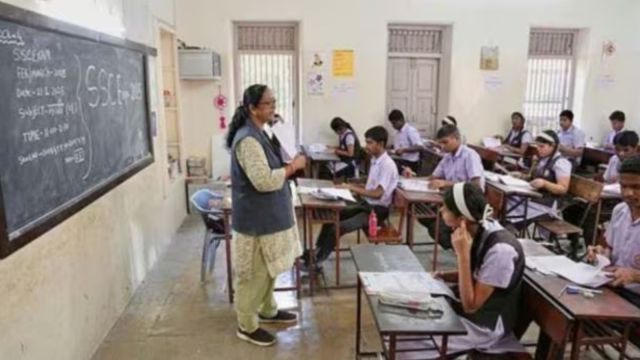Govt’s Language Advisory Committee to oppose introduction of Hindi in primary education
The committee members believe that it is not academically sound to introduce a third language at such a young age, when formal education of two languages just starts for children.
 The committee members believe that it is not academically sound to introduce a third language at such a young age, when formal education of two languages just starts for children. (Representative image)
The committee members believe that it is not academically sound to introduce a third language at such a young age, when formal education of two languages just starts for children. (Representative image)The Language Advisory Committee, appointed by the state government, which has been against imposition of Hindi as a third language in state schools, has now passed a resolution to oppose its introduction from Class 1. The committee members believe that it is not academically sound to introduce a third language at such a young age, when formal education of two languages just starts for children.
The committee, which comprises language experts and teachers among others, passed the resolution in a meeting held in Pune on Friday. Chairman of the committee Laxmikant Deshmukh, said, “It is unjust to put the burden of a third language on children. Ideally, there should be only one language at the beginning. But English has been made compulsory, realising its global importance and parents’ demand. There is neither any justified reason nor any demand to add a third language.”
Further highlighting that it is worse to make Hindi as the default third language in schools, Deshmukh said, “Imposition of Hindi is not only confusing to children but is also a cultural onslaught. Even though they use the same script, there are major variations in the way these two languages are written. Starting from grammar rules, use of punctuation marks, sentence structures and even meanings of words, there are major differences. For example, the word ‘shiksha’ in Hindi means education, but in Marathi, it means punishment. This confusion at the early stage of learning a language can impact the quality of language education.”
Deshmukh stated that the committee has also decided to take part in the protest against Hindi as a third language, called by the Shiv Sena (UBT) and the Maharashtra Navnirman Sena on July 5.
“The government is citing National Education Policy (NEP) 2020 for these changes, which actually emphasizes the importance of education in the mother tongue. The National Curriculum Framework (NCF) brings third language only from Class 6, raising questions on the state’s purpose to bring third language from Class 1,” said Deshmukh while adding that the government should rather work on improving the quality of language education in state-run schools.







